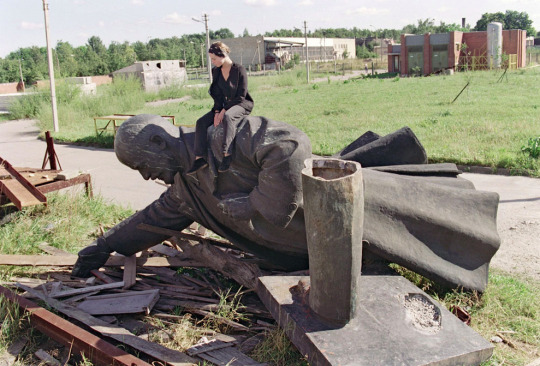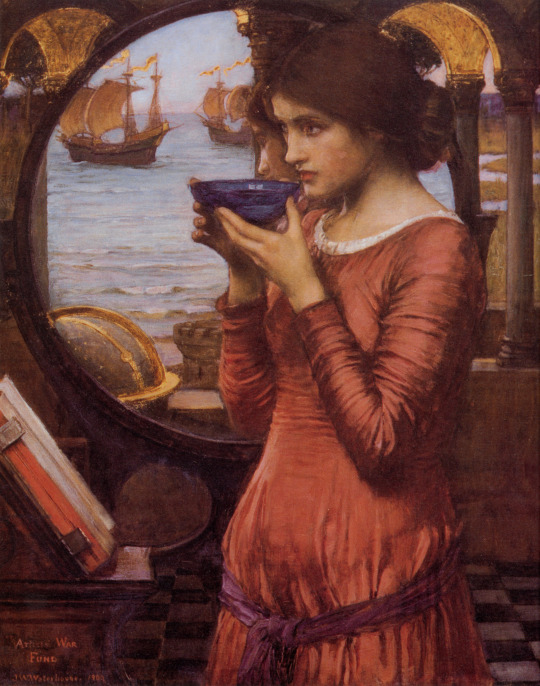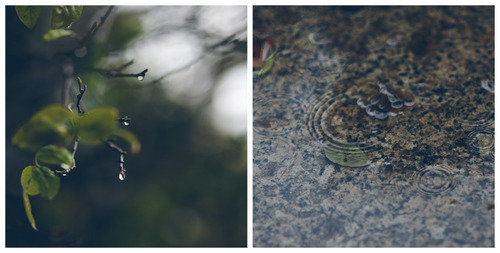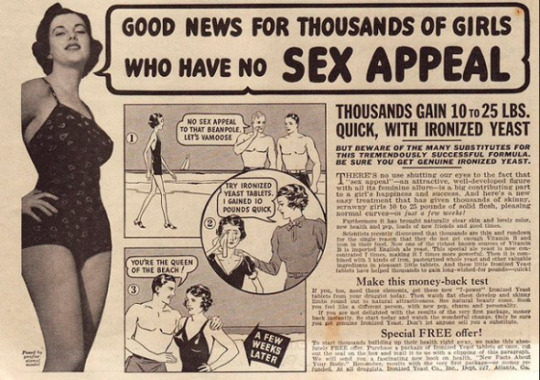Text
Excerpts from ‘A Man’s Story’
(...)
I remember, when I was little, I was always afraid of losing my father... Fathers were taken away at night; they’d vanish into thin air. That’s how my mother’s brother, Felix, disappeared... He was a musician. He was taken away for something very stupid...total nonsense... He was at a shop with his wife and said, ‘The Soviet regime has been around for twenty years, and they still can’t make a decent pair of trousers.’ (...)
Then the war came! After the war, I was afraid of ever remembering it... My war... Afterwards, when I tried to join the Party, they wouldn’t accept me: ‘What kind of communist are you if you were in the ghetto?’ I kept my mouth shut. Never said a word... There was a girl named Rozochka in our partisan division, this pretty Jewish girl, she’d brought books with her. Sixteen years old. The commanders took turns sleeping with her... They’d crack jokes about her: ‘She still has little kid hair down there, ha ha...’ Rozochka ended up pregnant. So they took her off deep into the woods and shot her like a dog... People had kids, of course, there was a forest full of healthy men. The usual practice was that when a child was born, it would immediately be taken to a village. Left at farmstead. But who would take a Jewish baby? Jews had no right to have kids. I returned from a mission. ‘Where is Rozochka?’ ‘What do you care? This one’s gone, there’ll be another one to take her place.’ Hundreds of Jews who’d escaped from the ghettos wandered the forests. Peasants would capture them and give them up to the Germans in exchange for a bag of flour, a kilogram of sugar. (...)
One day, the German motorcycles rode into the city. Some people welcomed them in traditional costume - embroidered shirts, bearing bread and salt. Joyously. Many thought that because the Germans were here, we’d finally get to lead normal lives. A lot of people hated Stalin and now, they could stop concealing it. So many new and strange things emerged at the outbreak of war...
That was when I first heard the word ‘kike’. Our neighbours started knocking on our door and shouting, ‘That’s it, kikes, your days are numbered! You’ll answer for what you did to Christ!’ I was a Soviet boy. I had completed fifth grade, I was twelve. I couldn’t fathom what they were talking about. (...)
My mother sewed yellow stars onto our clothes... For several days, none of us could bear to go out. We were ashamed... I’m old but I still remember how it felt, how embarrassing it was. There were flyers lying around all over the ground in the city: ‘Liquidate the Commissars and Jews’, ‘Save Russia from the Bolshevikike Regime’. Someone slid one of those flyers under our door... It all happened so fast... Rumours started spreading that American Jews were collecting gold to bail all of the Jews out of Europe and bring them to America, that Germans loved order but hated Jews, so Jews would have to spend war in ghettos... People attempted to make sense of what was going on... to catch onto a thread... Even hell is something that people will attempt to understand. I remember how we moved into the ghetto like it was yesterday. Thousands of Jews marched through the city... With children, with pillows. It’s funny: I brought my butterfly collection with me. It’s funny now... (...)
My mother took her wedding ring, wrapped it in a handkerchief and told me where to take it. That night, I crawled under the barbed wire... A woman was waiting for me at the place where my mother had sent me. I gave her the ring and she poured out some flour for me. In the morning, we realized that instead of flour, she’d given us chalk. Whitewash. That’s how we lost my mother’s ring. (...)
Vehicles arrived, lots of vehicles... Kids in nice suits and boots, women in white pinafores, and men with expensive suitcases poured out of them. Their suitcases were incredible! All of them spoke German. (...) That same day, we learned that these were Jews they’d brought over from Europe. (...)
All of them were shot. Tens of thousands of these so-called Hamburg Jews...
That day... it’s all a fog... How did they kick us out of the house? How did they transport us? I remember the big field on the edge of the forest... They selected the strongest men and ordered them to dig two big pits. Deep. While the rest of us stood there and waited. First, they tossed all the little kids into one of the pits... they started burying them.... And their parents didn’t even weep or beg. Everyone stood there in total silence. Why, you ask? I’ve given it a lot of thought... When a wolf pounces on you, you don’t try to talk to it, you don’t beg for your life. Or if a wild boar charges you... The Germans looked down into the pit and laughed, threw sweets in. The Polizei were dead drunk... Their pockets were stuffed with wrist-watches... They buried the children alive... They ordered everyone else to jump into the other pit. We stood there, my mother, my father, my little sister and I. Our turn came... The German in charge noticed my mother was Russian and gestured to her: ‘You’re free to go.’ My father shouted, ‘Run!’ But she grabbed onto him, clutched at me: ‘I have to be with you.’ All of us pushed her away, we begged her to leave... but she was the first one of us to jump into the pit...
And that’s all I can remember... I regained consciousness when I felt something sharp strike my leg. I cried out in pain. Somebody whispered, ‘Sounds like one of them’s alive.’ Men were digging through the pit with shovels, removing the shoes and boots from the corpses... Taking everything they could find. They helped me out. I sat on the edge of the pit and waited and waited... It was raining. The ground was very warm. They cut me off a hunk of bread, ‘Run, kikeling. Maybe you’ll survive.’ (...)
I don’t like the word ‘hero’. There are no heroes in war... As soon as someone picks up a weapon, they can no longer be good. They won’t be able to.”
Svetlana Alexievich, Second-hand time (2013)
Translated by Bela Shayevich (2016)
0 notes
Photo

A young Lithuanian girl sits on the toppled statue of Russian Bolshevik revolutionary leader Vladimir Lenin in Vilnius after the monument was removed from the center of the Lithuanian capital, on September 1, 1991. (Gerard Fouet/AFP/Getty Images)
“There were no rules: if you have money, you count - no money, you’re nothing. Who cares if you’ve read all of Hegel? ‘Humanities’ started sounding like a disease.”
Svetlana Alexievitch, Second-Hand Time
1 note
·
View note
Text
11. agosto
Chegou a hora. Há um relógio para despertar que, apesar de ter como apêndice do nome o sentido da sua existência, nunca o cumpre com rigor, fazendo apenas tremer ligeiramente alguns sentidos. A cambalear dentro da escuridão, chega junto à janela e agarra a fita da persiana, que por ser velha e pesada, exige força em demasia. É um momento solene, cumprido com a determinação de um general que com uma só ordem desvenda as fileiras do inimigo.
Da vontade faz-se clarão: são mais de dois metros de largura cheios de sol de Agosto e de azul limpo e impossível. Os olhos adaptam-se lenta e quase dolorosamente ao mesmo tempo que se sente nos pés, estacionados na soleira de mármore, o conforto do calor que entra sem pedir. Saindo de mansinho para a varanda, não há surpresas: é verão, o tempo da eterna infância à beira-mar, do cheiro a limões maduros e a madeira seca, a sargaço e a vento do norte. O tempo do preto reluzente das rochas a brilhar ao sol na maré baixa, e do aborrecimento que afinal não o era.
Como tudo o que é ritual, só se torna bom quando a soleira debaixo dos nossos pés é diferente, e nos olhos passam a estar mais de dois metros de largura cheios de noite e chuva sem memória.
1 note
·
View note
Text
a montanha

A montanha dormia o sono profundo das noites de inverno, exibindo a admirável indiferença dos penedos. A caminho do frágil refúgio, com os ossos trémulos, ela concluía que aquelas camisolas de menina da cidade que vestia eram demasiado curtas para o rigor serrano de fevereiro; deixavam entrar, pelo dramático vale situado no fundo das costas, um frio seco que quase imobilizava.
A terra era só silêncio. As copas das árvores abriam-se para um céu feito só de estrelas. Conhecia o porquê das estrelas, que vinha descrito nos livros, mas ainda assim era difícil perceber como tantas delas se prostravam todas as noites perante as encostas. Umas perfeitamente alinhadas, outras rebeldes, anárquicas - uma espécie de metáfora para as coisas que sentimos.
Foram dias de desconforto, esses na serra. O desconforto do frio, do assombro das estrelas, da clareira de solidão. Para além dos olhos demasiado meigos de um desconhecido que, ao longe, desafiavam o inverno.
Anos depois, a mesma montanha, agora verde das chuvas de verão, escondia as estrelas por detrás de nevoeiro denso. Ja não havia clareira para o céu, e já não havia solidão. O desconhecido tinha passado a descoberta. Ao seu lado, no refúgio, descansava os olhos (os mesmos olhos meigos). Com saudades das estrelas, ela desenhava-lhe constelações entre os sinais da pele.
1 note
·
View note
Photo

(there comes a time when) all a woman needs is a serious conversation.
3 notes
·
View notes
Text
9. terra
Cidadãos do mundo
limpo ou sujo,
desde que cosmopolita
e miserável
por culpa própria
ou dos outros.
Cidadãos só do mundo
e não das terras.
0 notes
Photo
dbltke:
Lauren Young by Jonathan Leder for Jacques Magazine

20 notes
·
View notes
Text
8. inglês
quite happy, quite proud to have found a special place within normality
gives you infinite peace of mind
0 notes
Text
7. cor
meninas azuis
meninas amarelo histérico
meninas açucar brilhante bola de berlim
meninas transparentes que esvoaçam
meninas coloridas sem histórias
meninas fáceis de saber de cor.
0 notes
Text
6. erro de descartes
Instruíram-me que o nervo não devia ser torturado pela injustiça das coisas, porque é indelicado e faz mal à tensão. Instruíram-me a banalizar. A corrigir erros de conjuntura em cima de erros de estrutura - porque, no fim das contas, eu não vou mudar o mundo, ou os mundos, por mais pequenos que sejam. Às vezes pergunto-me se fui só eu que cresci com esta estranha afeição pela retribuição do mérito, ceteris paribus (como diriam pessoas importantes). Se seria mais normal (sim, definitivamente) acreditar em Deus. Ou se me traria vantagens ser hermética, como um tupperware. Depois concluo que as pessoas não devem ser tupperwares. E que nada, a não ser a terra, nunca mudou nada sem criar antes um profundo sentimento de raiva contra qualquer coisa. Até mesmo a terra, quando muda, treme e faz-se ouvir.
Apontem-me todos os defeitos. Pensar e sentir em simultâneo não será, de certo, um deles.
0 notes
Text
5. chuva
As meninas aproveitam as janelas do metro para arranjar o cabelo.
Milhares de anos corre um curso de água para formar o vale de um rio, milhares de gente vive e morre para erguer as luzes de uma cidade, toda essa importância esfumada em monótonos movimentos pendulares. Do alto daquela ponte, o que importa é o lado de dentro do vidro frio e salpicado de chuva. Os olhos pesados do trabalho (ou os olhos sempre fechados da ignorância) são o mais grave atentado à beleza do mundo.
1 note
·
View note
Text
4. take five
Disse-me que o meu corpo tinha forma de mudança, e que nenhum gesto meu ou ritmo em mim era indiferença. Depois sorriu como faz sempre, e eu acreditei. Reparo repetidamente no centro dos lábios dele - está lá sempre um v, de verdade.
1 note
·
View note
Text
3. fim
à noite, ver o corpo como folha, a poisar serena e inanimada de outono.
1 note
·
View note
Text
2. para
Ser demasiado infeliz, inquieto, irrequieto, irascível para alguém.
ou julgar-se dessa forma.
1 note
·
View note
Text
1. tempo
Mentiram-me, e isso custou-me o tempo para ser.
O trabalho mata as horas por tostões, e as pernas correm entre lugares demasiado familiares, todos os dias, com as mesmas expressões e o mesmo bafo que já nem incomoda. Há tempo, no caminho, para pensar nas vidas que os outros levarão e em muitos (inconsequentes) inícios de frase, ideias baralhadas entre sonos breves e desnecessários.
No fim, dizem-me que não sonho. Dizem-me que o talento são outros investimentos. Pedem-me que invente tempo para além do cansaço. Que é tudo inútil. É tudo gráfico ou movimento, a palavra e o pensamento são tradições velhas, acumuladas num canto que ninguém visita. A palavra é impercetível e não serve à beleza – é fácil, assim, algo que um dia criou a imaginação do mundo, depressa deixar de servir à inspiração dos homens.
Mentiram-me em tudo. Mas eu não desisto.
2 notes
·
View notes
Text
março

Afinal há tempo. Afinal há braços onde descansar da corrida.
há terra, e rio, e mar. E gente que vive devagar.
Os teus olhos ainda são peixes verdes,
Os teus olhos nunca vão deixar de ser peixes verdes.
E este lugar, aqui, de onde os vejo,
tem como única geografia
ser a mais perfeita coincidência.
1 note
·
View note
